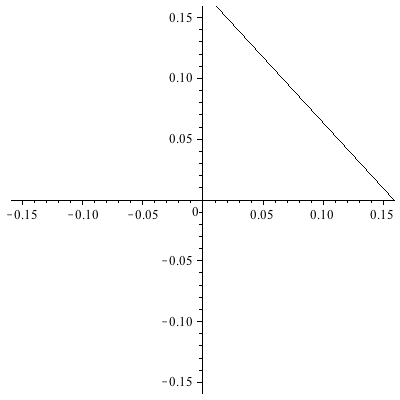
Linear Mathematics in Infinite Dimensions, Math 5102
MoWeFr 9:10AM-10:05AM Enarson 354
Main textbook: Linear Mathematics in Infinite Dimensions, Beta edition,
by U.H. Gerlach (Typeset lecture notes)
I will also provide notes for most topics
.
.
.
.
.
Topics:
Hilbert spaces, Sturm-Liouville systems, Fourier and wavelet theory, Green's functions, Helmholtz's equation, cylinder and spherical harmonic solutions, interior and exterior boundary value problems, method of steepest descent and stationary phase.
Partial differential equations: elliptic, parabolic, and hyperbolic (time permitting).
Instructor: Ovidiu Costin
Math Tower 404
Office hours: Thursdays 8 AM
Since the course is geared towards applications, some
concepts are incompletely defined.
Making all concepts rigorous is not possible without making the course less
applied. I will simply try warn you when things would require more
mathematical precision.
Course policy
Homework:
One homework set every week, generally posted on the web page each Wednesday and due the following Wednesday at the beginning of the class.
Exams:
one midterm exam (in class), tentative date Wed Feb. 20th.
one cumulative final.
Team work:
YES for homework, NO for the exams.
• For each homework assignment, collaboration is allowed.
Each team (up to three students) should submit only one write-up, signed by all members of the team.
• The EXAMS ARE INDIVIDUAL, and any collaboration is strictly prohibited. But: do bring a cheat sheet.
Homework policy:
Each assignment paper will be graded for mathematical correctness AND PRESENTATION. Points will be deducted for sloppiness, incomprehensible or insufficient explanation, or for lack of supporting arguments. The solutions should be presented so that your fellow students could read them and follow both the calculations and logic.
Grading policy:
Each assignment will consist of approximately 50 possible points, the midterm exam is worth 100 points and the Final Exam will be worth about 200 points. There is a total of about 900 points.
Late papers will not be accepted except in extreme situations with documented excuse. It is the student’s responsibility to be aware of all instructions that are delivered during class, including departures from general assignments.
Use of software:
You are encouraged and sometimes have to use a software package such as Maple, Mathematica, or Matlab. So, practice with such software soon, and get used to working with it. All routine calculations should be checked this way. If we want you to do hand calculations, we will make it explicit. Even then, check your calculations.
When you use software for your homework, you should submit the output + explanations (what calculations you did and why). A simple solution consisting of output from, say, Mathematica is NOT sufficient. Use common sense here.
General information
Academic Misconduct Statement:
It is the responsibility of the Committee on Academic Misconduct to investigate or establish procedures for the investigation of all reported cases of student academic misconduct. The term ``academic misconduct'' includes all forms of student academic misconduct wherever committed; illustrated by, but not limited to, cases of plagiarism and dishonest practices in connection with examinations. Instructors shall report all instances of alleged academic misconduct to the committee (Faculty Rule 3335-5-48.7). For additional information, see the
Code of Student Conduct
.
Disability Services Statement:
The University strives to make all learning experiences as accessible as possible. If you anticipate or experience academic barriers based on your disability (including mental health, chronic or temporary medical conditions), please let me know immediately so that we can privately discuss options. To establish reasonable accommodations, I may request that you register with Student Life Disability Services. After registration, make arrangements with me as soon as possible to discuss your accommodations so that they may be implemented in a timely fashion. SLDS contact information: slds@osu.edu; 614-292-3307; slds.osu.edu; 098 Baker Hall, 113 W. 12th Avenue.

